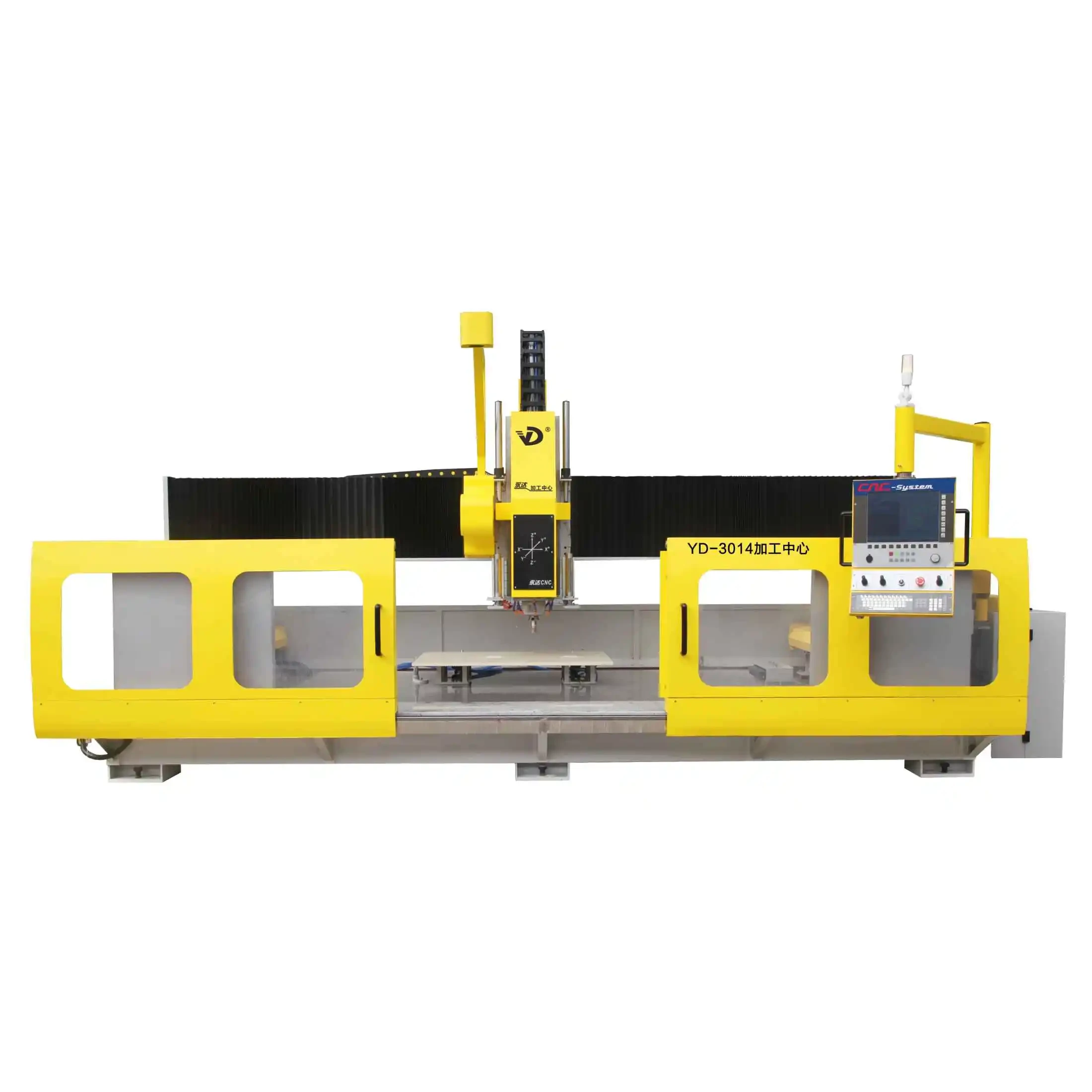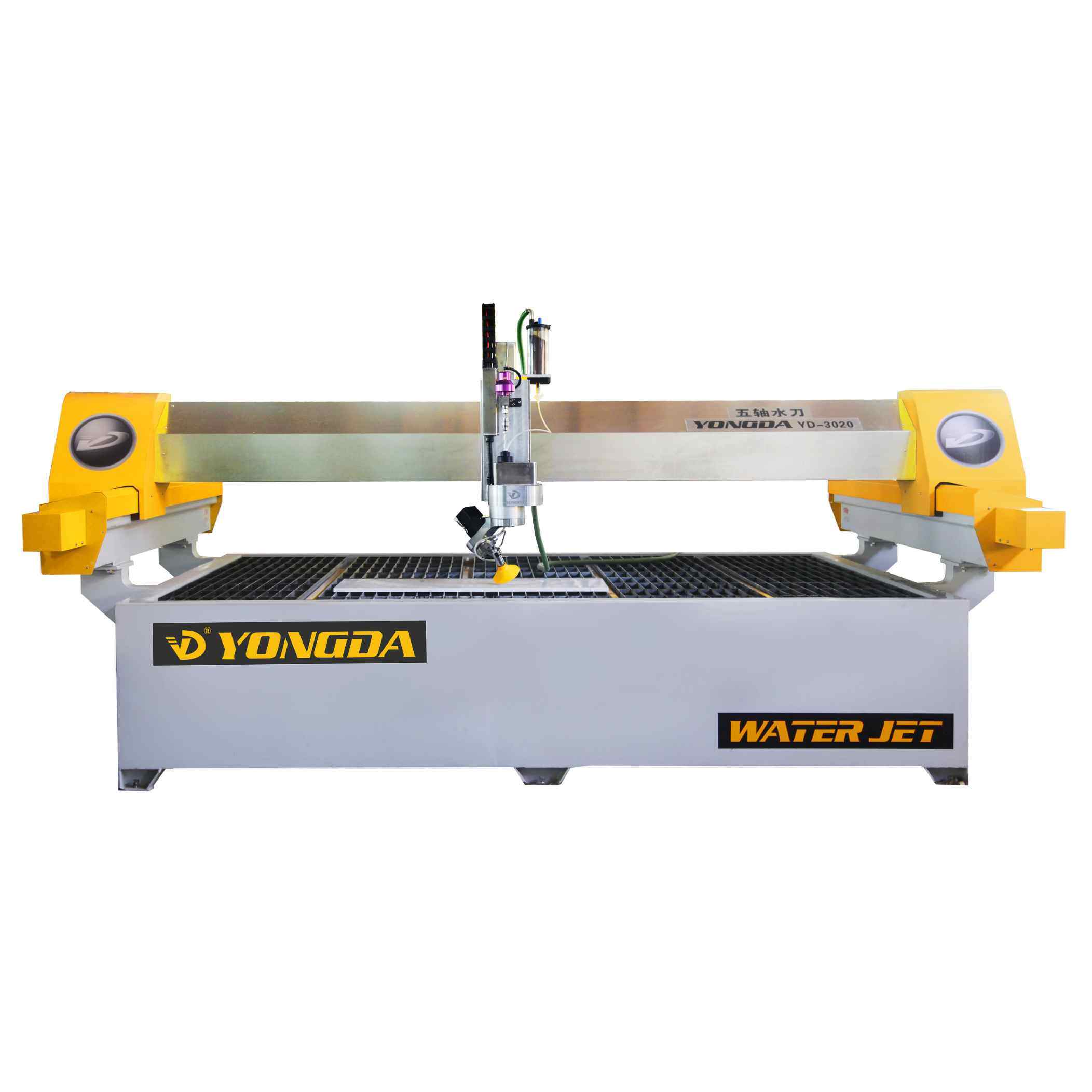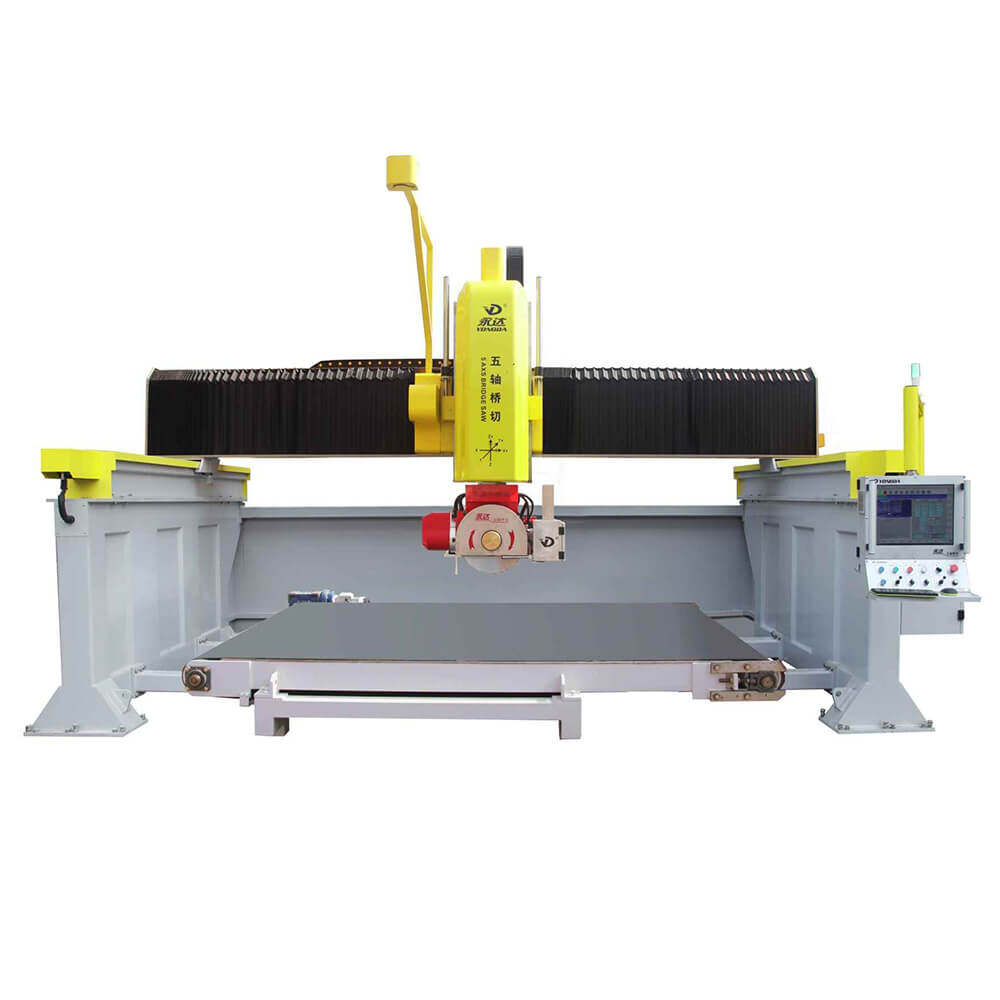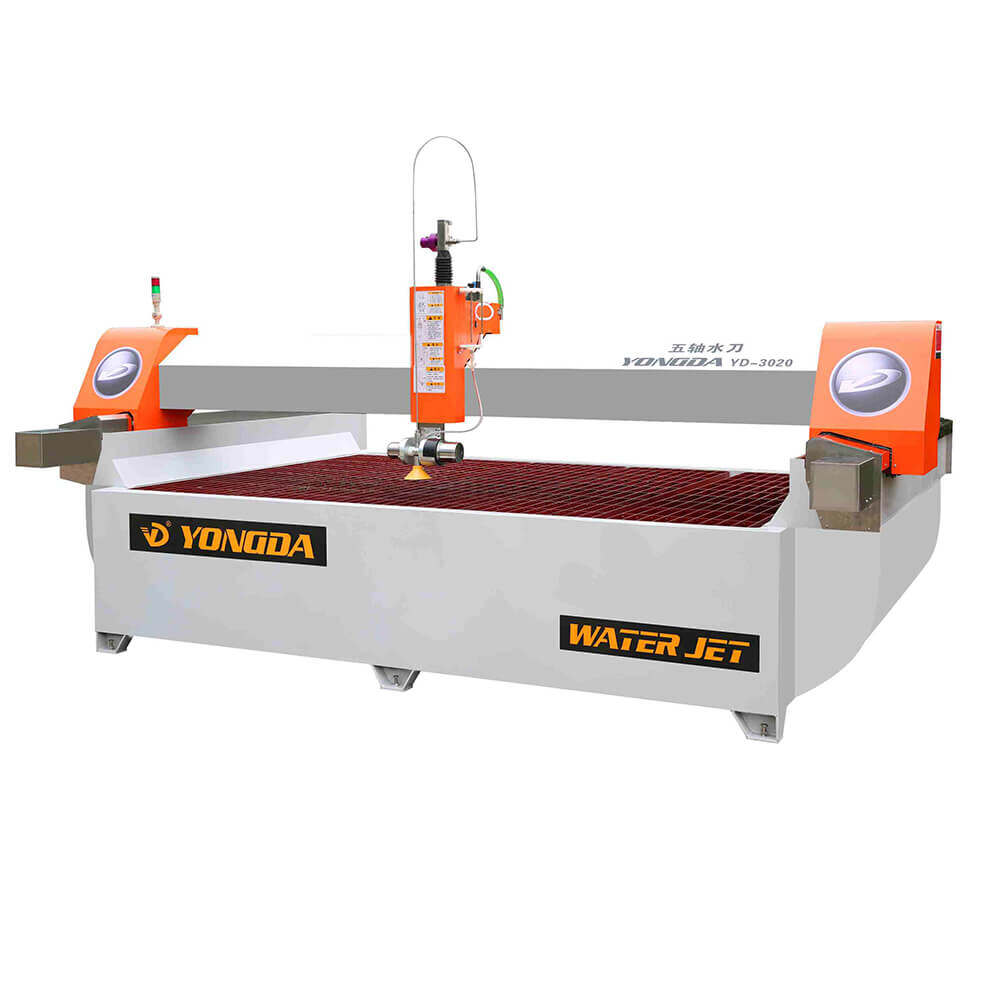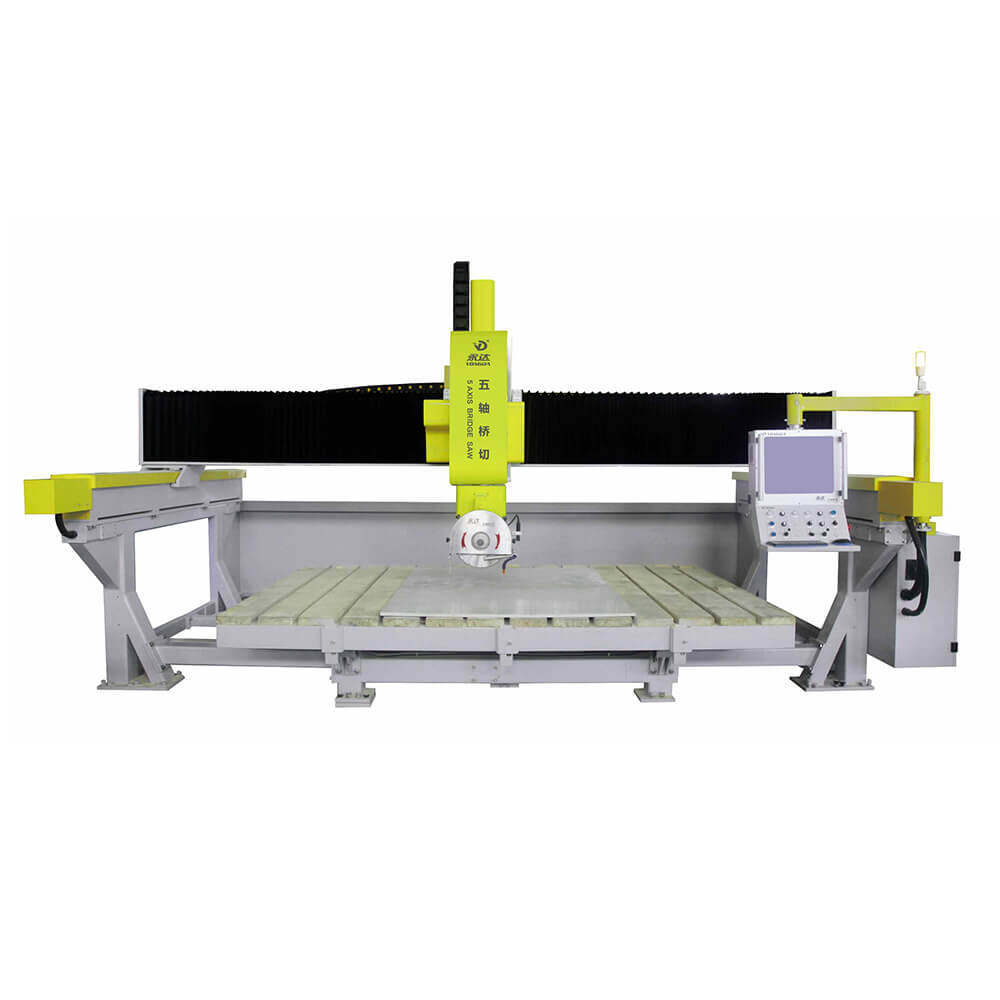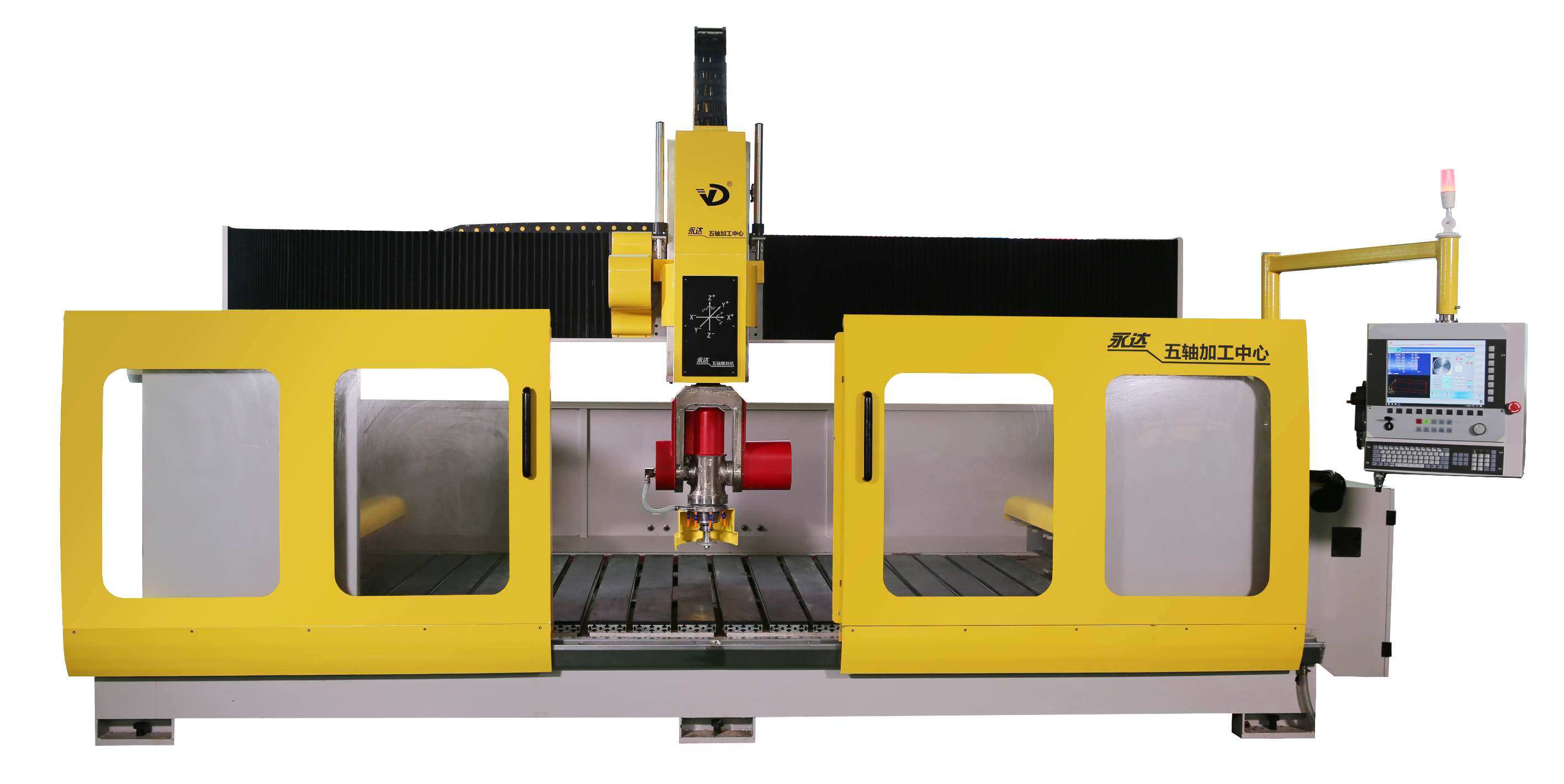In the realm of stone fabrication, precision is paramount. Whether crafting intricate architectural details, countertops, or monuments, achieving exact measurements and flawless finishes is essential. Computer Numerical Control (CNC) technology has changed the stone machining industry, offering unparalleled precision, efficiency, and versatility. This article explores how CNC technology in stone machining centers enhances precision, benefiting both fabricators and end-users.
The Fundamentals of CNC Technology
CNC technology involves the use of computer-controlled machines to perform various machining tasks. These machines follow pre-programmed instructions, known as G-code, to control the movement of cutting tools and other machinery. In stone machining, CNC technology is employed to cut, shape, polish, and engrave stone materials with high accuracy.
Key Components of CNC Stone Machining Centers
High-Precision Spindles: CNC stone machining centers are equipped with high-power spindle motors that ensure stable and precise cutting. These spindles can operate at varying speeds, allowing for the meticulous handling of different stone types and thicknesses.
Advanced Guide Rails and Transmission Systems: The use of high-precision guide rails and transmission systems, such as ball screws and rack gears, ensures smooth and accurate movement of the cutting tools. This minimizes deviations and maintains consistent precision throughout the machining process.
Vacuum Adsorption Tables: These tables securely hold the stone slabs in place during machining, preventing any movement that could compromise accuracy. The vacuum system ensures that even large and heavy stone pieces remain stable.
Automatic Tool Changers: CNC machines are equipped with automatic tool changers that can switch between different tools without manual intervention. This feature allows for seamless transitions between cutting, polishing, and engraving tasks, maintaining precision and efficiency.
Enhancing Precision Through CNC Technology
1. Consistent Accuracy
CNC machines eliminate the variability associated with manual machining. The pre-programmed instructions ensure that each cut, polish, or engraving is executed with exact precision. This consistency is crucial for producing high-quality stone products that meet stringent specifications.
2. Complex Geometries and Intricate Designs
CNC technology enables the creation of complex shapes and intricate designs that would be challenging or impossible to achieve manually. The ability to follow detailed CAD models allows fabricators to produce sophisticated patterns, textures, and reliefs with high precision.
3. Reduced Material Waste
The precision of CNC machines minimizes material waste by optimizing the cutting process. Accurate cuts mean less excess material is removed, leading to more efficient use of stone slabs. This not only reduces costs but also contributes to sustainable practices in stone fabrication.
4. Improved Quality Control
CNC technology enhances quality control by ensuring that each piece is machined to exact specifications. The ability to replicate designs with high accuracy reduces the likelihood of defects and inconsistencies, resulting in superior finished products.
5. Faster Production Times
The automation provided by CNC machines accelerates production times without compromising precision. High-speed spindles and efficient tool changers allow for rapid machining, enabling fabricators to meet tight deadlines and high-volume orders.
Applications of CNC Stone Machining Centers
CNC stone machining centers are versatile and can handle a wide range of applications, including:
Countertop Fabrication: CNC machines can cut and polish countertops with precise edge profiles and sink cutouts, ensuring a perfect fit and finish.
Architectural Elements: Intricate architectural details, such as columns, balustrades, and moldings, can be crafted with high precision, enhancing the aesthetic appeal of buildings.
Monuments and Memorials: CNC technology allows for the accurate engraving of text and images on monuments and memorials, preserving the integrity of the design.
Decorative Art: Artists and designers can use CNC machines to create detailed stone sculptures and decorative pieces, pushing the boundaries of creativity and craftsmanship.
Conclusion
CNC technology has transformed the stone machining industry by providing unmatched precision, efficiency, and versatility. The ability to produce complex designs with consistent accuracy, reduce material waste, and improve quality control makes CNC stone machining centers an invaluable asset for fabricators. As the technology continues to advance, the potential for innovation in stone fabrication will only grow, offering new opportunities for architects, designers, and craftsmen to bring their visions to life with exact precision.
By leveraging the capabilities of CNC technology, the stone machining industry can achieve higher standards of quality and efficiency, ultimately benefiting both fabricators and end-users. Whether for architectural projects, custom countertops, or artistic creations, CNC stone machining centers are at the forefront of precision and innovation in stone fabrication.


